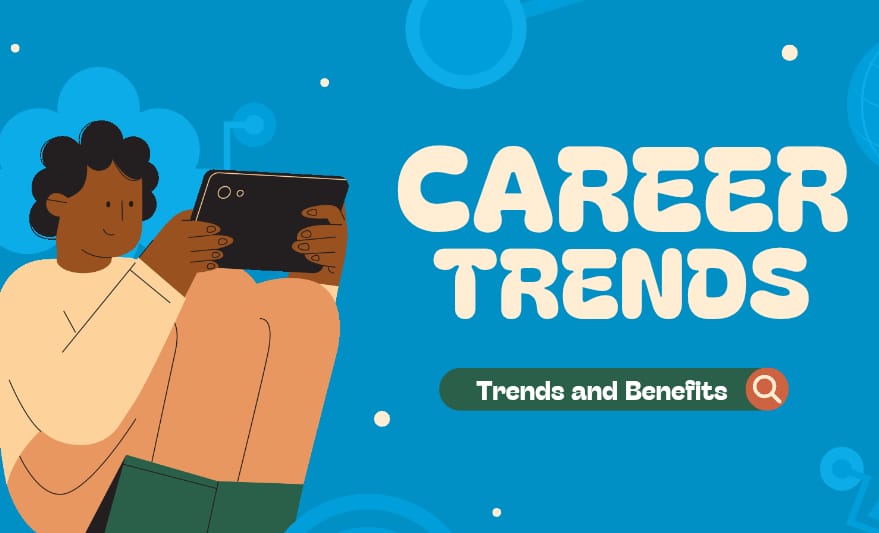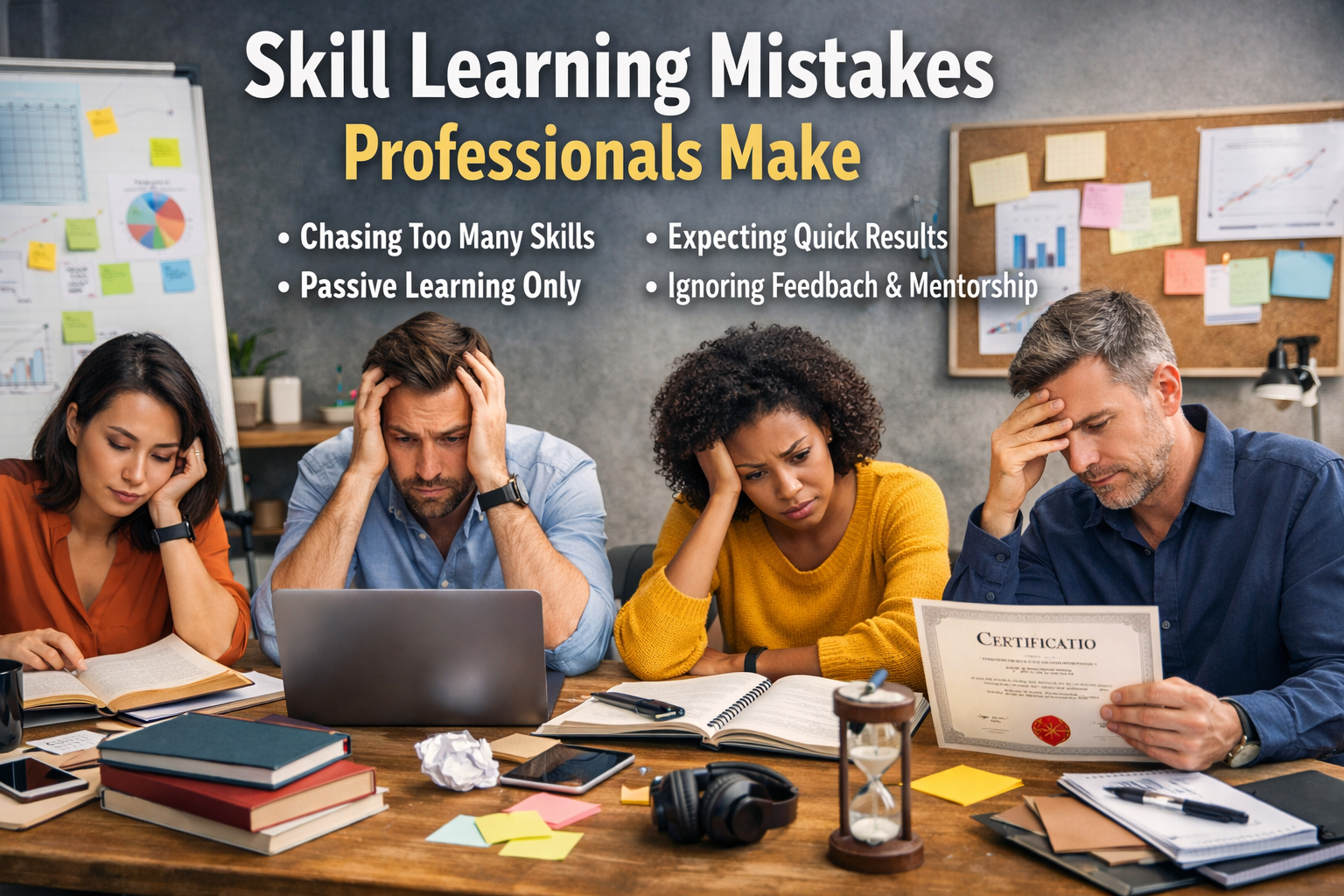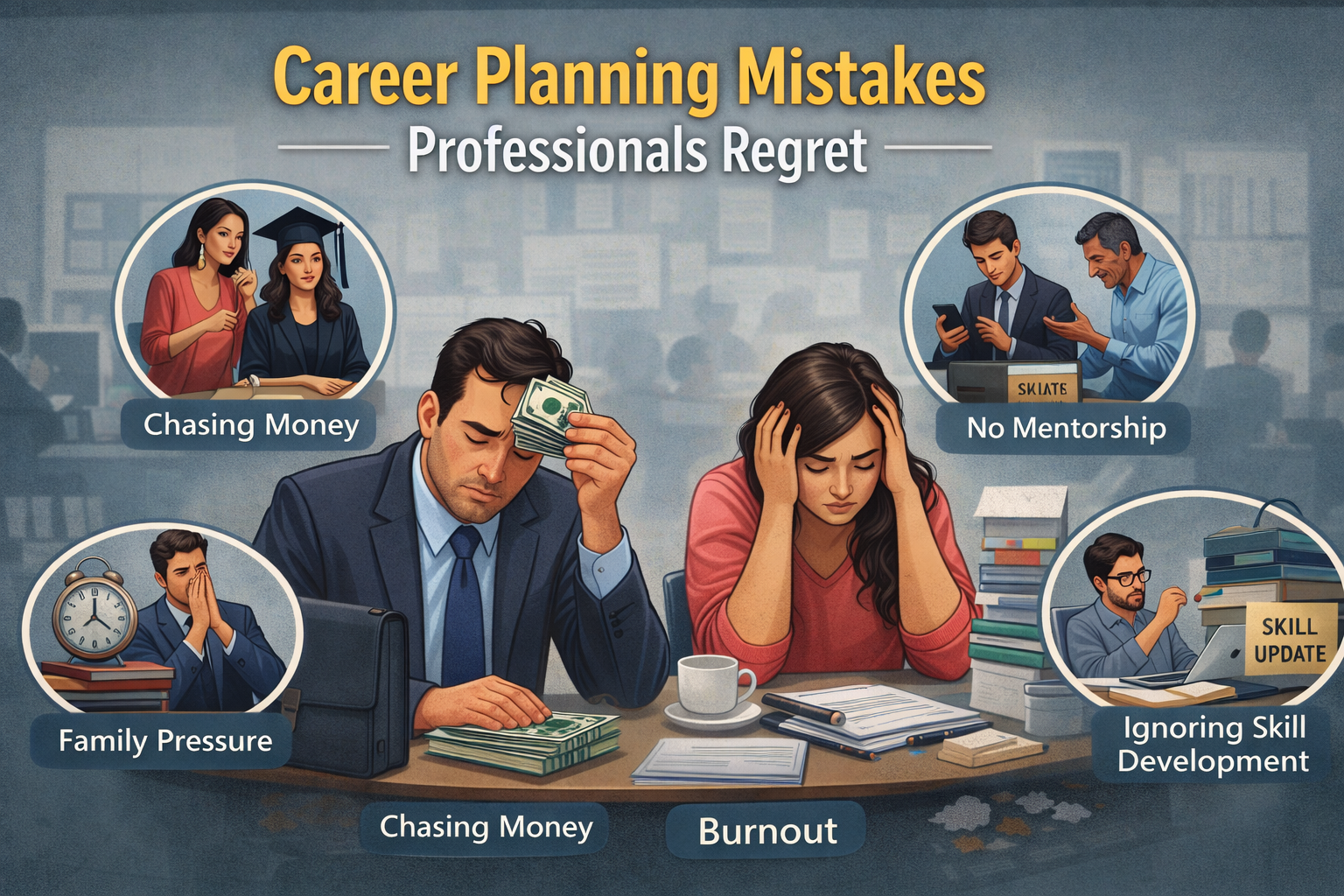Introduction
Understanding career trend is important because it help us to make a roadmap for job seekers. Job seekers get clarity on which skills they have to focus on for their career. If you understand the expectations of the current hiring industry, then you can make your career future-proof and you will be a step ahead in the competition.
This article covers the top career trends shaping the global job market, such as the rise of AI and automation, the growth of remote and hybrid work models, the demand for green and sustainable jobs, and many more. Read this article to learn more in detail.
Top Career Trends Shaping the Global Job Market
1. Rise of AI and Automation in the Global Job Market
In today’s time, the recruitment process has become faster and efficient, all credit goes to AI. Earlier hiring takes a week or a month because the recruiter has to check resumes manually, contacting candidates takes time, and scheduling interviews is also time-consuming. Now this work gets done in only a few days, and sometimes, in just a few hours, it is also just because of AI.
AI matches skills, screens resumes, analyzes video interviews, and gives data to the recruiter. With the help of AI, the hiring process becomes faster and easier. The biggest impact of this change is that hiring is data-driven and less biased, though it requires improvement
2. Growth of Remote and Hybrid Work Models in the Global Job Market
Now remote and hybrid work has become a standard model. Now companies do not only search for office-based talent, but instead they search for those candidates who can be equally productive in a remote environment. It has become a deciding factor for recruiters.
- Companies Seeking Remote-Ready Talent
The meaning of the remote is not just working from home, but also discipline and accountability. Decorators prefer those candidates who are self-motivated, take independent decisions, and deliver without micromanagement. Being remote-ready means managing your work effectively. - Global Hiring and Time Zone Flexibility
Remote work has broken the geographical boundaries. Now a developer is working for us and a European client from India only. That’s why recruiters want professionals who can work with time zone flexibility, attend meetings, and handle cross-cultural communication. - Tools and Practices Recruiters Expect Candidates to Know
Tools play the most important role in remote and hybrid setups. Recruiters expect that candidates should have practical knowledge of collaboration and project management tools for example Slack for communication, Jira for project or task management, GitHub/GitLab for version control and code collaboration, and Zoom or Google Meet for virtual meeting.
These tools are important for technical work as well as for teamwork and productivity maintenance. Candidates who are comfortable with these tools, their hiring chances increase automatically.
3. Demand for Green and Sustainable Jobs in the Global Job Market
Green jobs are roles that contribute directly or indirectly to preserving or restoring the environment. They help reduce carbon emissions, improve energy efficiency, and promote sustainable resource use. These jobs can exist across multiple industries not just in renewable energy or environmental science.
For example, a software engineer developing AI tools for clean energy management, a construction manager using sustainable materials, or a financial analyst working on ESG (Environmental, Social, and Governance) investments are all part of the green job ecosystem.
The importance of green jobs extends beyond environmental protection. They represent a shift in how societies measure progress focusing on sustainability, circular economies, and ethical growth. As climate change continues to affect global economies, organizations that prioritize sustainability are gaining investor confidence and public trust.
Green careers not only help protect the planet but also offer long-term job stability, as global policies increasingly favor companies that operate sustainably.
4. Upskilling and Lifelong Learning
In the 2025 software industry is evolving very fast. Every year, there are new tools, new frameworks, and new technologies. That’s why recruiters are not dependent on only a degree or on a single skill; instead, they see that candidate are upgrading themselves continuously or not.
- Importance of Certifications
Certifications like AWS, Google Cloud, AI/ML, and Cybersecurity are no longer just “nice-to-have” extras; they have become a necessity. If your resume highlights these certifications, recruiters see it as a sign that you are serious about your career and ready to adopt the latest industry trend. - Self-Learning through MOOCs & Bootcamps
Free and paid learning platforms such as Coursera, Udemy, and coding bootcamps make it possible to gain industry-relevant skills in a short time. Recruiters prefer candidates who take the initiative to learn independently, build projects, and showcase their work on GitHub or through a personal portfolio. - Side Projects & Practical Exposure
Theoretical knowledge alone is not enough. Today, recruiters place greater value on practical exposure. If you have built side projects — like an AI chatbot, an e-commerce app, or a cloud-based solution — it directly proves that you can not only learn but also apply your knowledge in real-world scenarios.
Summary
Recruiters today look for “lifelong learners.” They want professionals who are not limited to their college syllabus but continue exploring new courses, adopting modern tools, and applying their skills practically. Simply put, if you are continuously upgrading yourself, your chances of landing a software job in 2025 are much stronger.
5. Demand for Soft Skills in the Global Job Market
In 2025, securing a job with only technical skills will be difficult. Recruiters now prefer candidates who have technical knowledge as well as strong soft skills. These skills are crucial for career growth and to stand out.
- Communication and Collaboration
Clear communication has become a must-have skill in the time of remote and hybrid work setups. Recruiters value those professionals who can understand complex ideas in simple words and can collaborate effectively with the team. Good communication is important for a smooth project delivery and to avoid misunderstandings. - Problem-Solving and Adaptability
Every day there are new challenges in the Software industry, like bugs, client expectations, and the latest technology. Recruiters prefer candidates who can quickly adapt to changes and come up with solutions for every problem. Flexibility and adaptability are strong assets for long-term success. - Leadership and Team Management Even for a Remote Setup
Leadership is not limited to senior positions only. Recruiters prefer those candidates who have leadership qualities like motivating the team, managing deadlines, and handling complex tasks, whether it is in a team office or at a remote setup. Virtual leadership skills like empathy and building trust have become more valuable.
6. Diversity, Equity, and Inclusion (DEI) Trend
Now, diversity, equity, and inclusion are also becoming a major part of hiring strategy. Now companies are searching for those candidates who are not just skillful but also are ready to work in an inclusive and diverse environment.
- Companies Looking for a Diverse Tech Team
In today’s time, global companies have understood that diverse teams are more innovative and creative. When candidates with different backgrounds, genders, cultures, and experiences work together, they come up with new ideas and solutions. Just because of this, recruiters prioritize those candidates who can contribute to team diversity. - Inclusive Hiring Practices are Becoming a Priority
Now recruiters not only focus on the resume and skill set. They follow inclusive hiring practices such as blind recruitment in which name, gender, and location are hidden. - Providing Equal Opportunities with the Help of Skill-Based Assessment.
Gender neutral language and unbiased interview questions.
These practices ensure that every candidate gets an equal Chance.
Benefits of DEI for candidates and companies :
- For Candidates: Get more growth and learning opportunities by working in an inclusive environment. Every perspective gets value.
- For Companies : Diverse teams do better decision-making and problem-solving. Innovation and employee satisfaction also improve.
Conclusion
The article explored the major career trends shaping the global job market in 2026 — including the rise of AI and automation, the shift toward remote and hybrid work, the growth of the freelance economy, and the increasing demand for green jobs and soft skills. It also highlighted the importance of continuous learning, diversity, and technology-driven roles across all industries.
By understanding these trends, you’ll be better prepared to choose the right career path, upgrade your skills, and stay competitive in the evolving global job market.
Explore more informational blogs here.







Leave a Reply